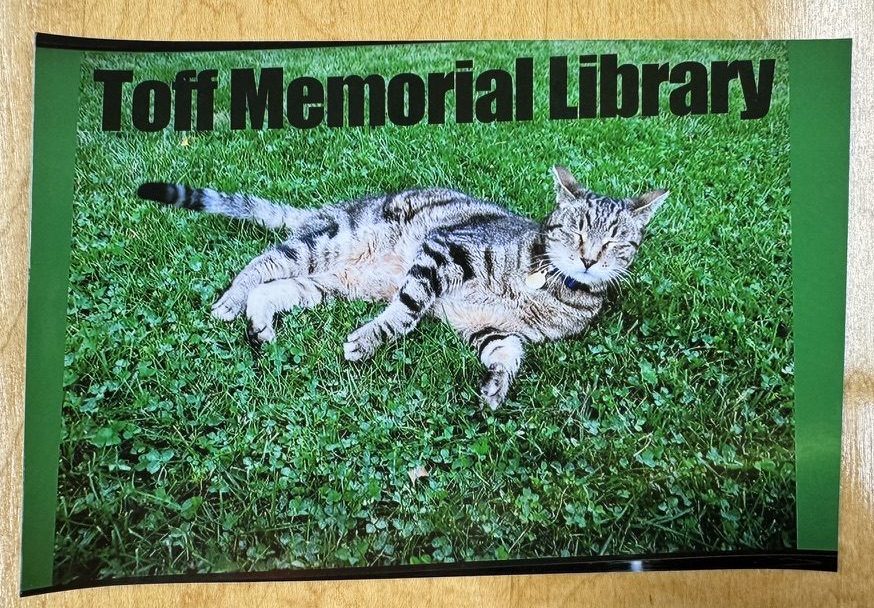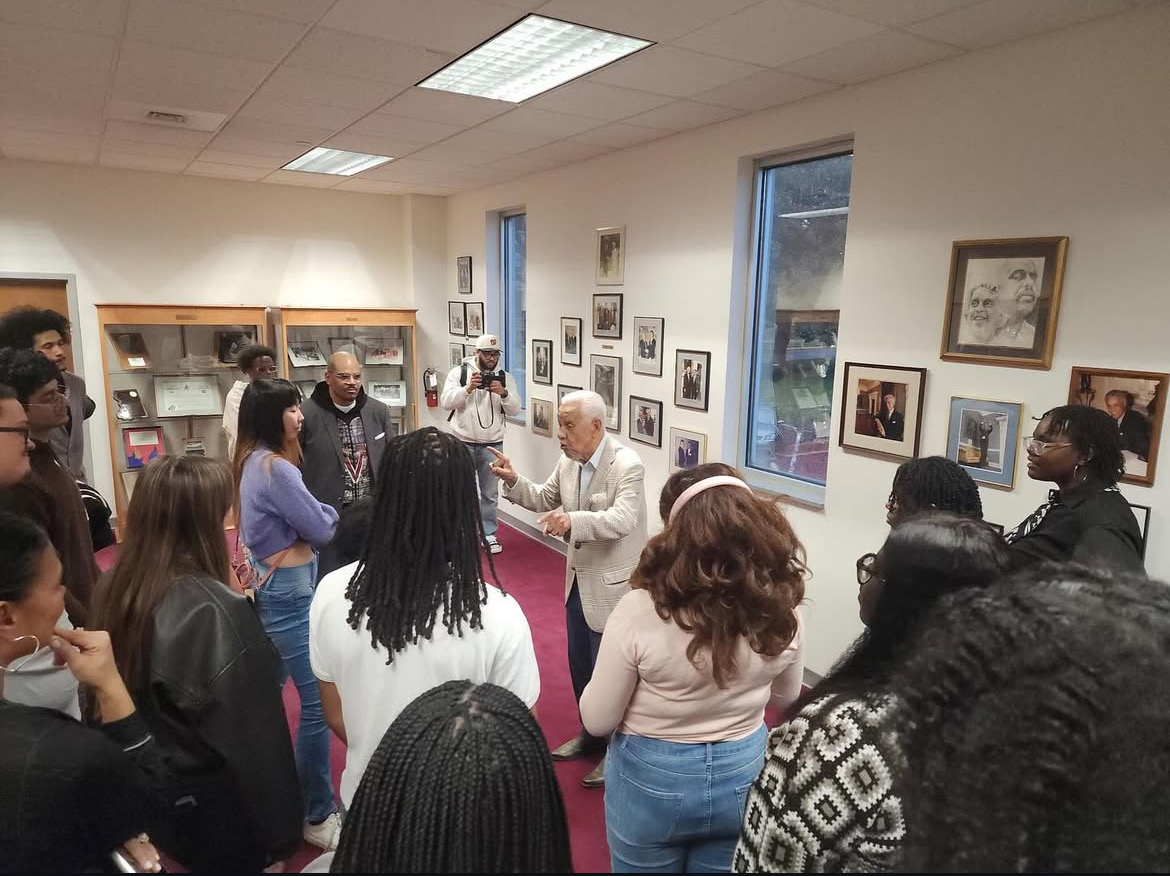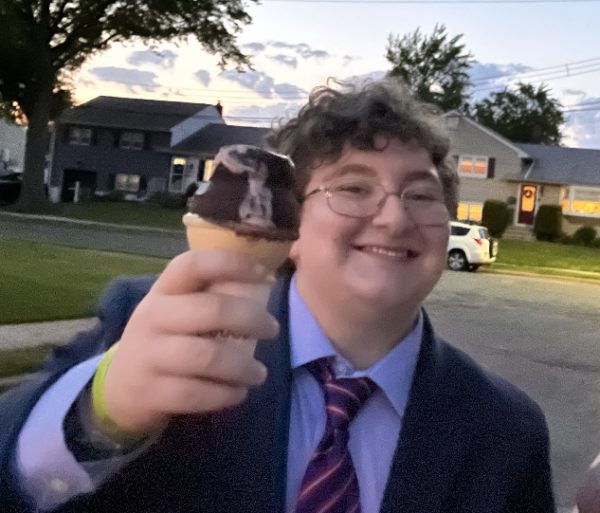On Wednesday, October 11, the Carleton Chapel celebrated National Coming Out Day with a service co-organized by the Gender and Sexuality Center (GSC) and the Office of the Chaplain. The reflective and non-religious service was led by interim director of the GSC Dani Perez, Chaplain Schuyler Vogel and various students. After the service, students, staff and faculty gathered in the back of the chapel for dinner catered by Desi Diner in Northfield.
The service began with original music from Clara Devey ’27, who sang multiple songs that dealt with themes like the difficulty of being vulnerable with others and expressing love to the world. Devey was grateful for the opportunity to share her music and loved how student-centered the service was.
After an opening song, Perez shared some history of National Coming Out Day as a holiday and the long and arduous journey that led to its creation. National Coming Out Day was first celebrated in 1988, an act of rebellion and a firm reminder of queer presence at the height of the AIDS crisis and the end of the Reagan era, according to the Washington Post. National Coming Out Day has been celebrated every year since on October 11 in a variety of different ways, but, above all, it is a celebration of all queer people, no matter where they are in the coming out process.
Later in the service, several students gave reflections on their personal experiences of coming out and what queerness means to them. Natalia Ron-Lopez ’25, who is a chaplain’s associate, spoke about her journey of coming out to others as queer, working through her trans identity and her present life as an openly queer and trans person.
Em Kutcher ’26, who works for the GSC, then led the community in a quiet meditation exercise. Kutcher, who recently became certified to lead meditation, emphasized that during the exercise, the attendees didn’t need to ignore what they were thinking about, but instead encouraged them to “feel each thought fully and let it pass.” After the exercise was over, the participants were encouraged to spend a short time reflecting on what they thought about during their meditation in writing.
Before the concluding song sang by Xiomara Winston ’26, Vogel led the service in a candle lighting ceremony. This ceremony was similar to the one that Vogel led during the Multifaith Opening Ceremony on Sept. 10, where attendees shared a hope for the term to come and then lit a candle as a symbol to affirm their wish. At this service, Vogel encouraged participants to share a reflection on coming out or the larger concept of queerness, either out loud or in their heart, as they lit a candle. Many of the attendees, both students and staff, lit candles and shared their experiences of their identities, how others respond to them and how they feel accepted at Carleton.
About 40 students and staff were in attendance, and the response to the service was largely positive. “In conversations with students and our colleagues at the Gender and Sexuality Center, who co-sponsored the event, I heard that many felt it went well,” Vogel said. “I was touched by the vulnerability and courage of many students who shared their experiences, either through pre-written reflections, music or during the ritual sharing. The Chapel is trying hard to meet students where they are, not where we think they should be, and so we were glad that the service seemed to impact Carls in a meaningful way.”
This is the first time that the Office of the Chaplain and the GSC have collaborated on a National Coming Out Day celebration, but both Vogel and Perez expressed interest in making the service an annual event. They also want to plan future queer-focused events in the chapel, like services for Trans Day of Remembrance and Trans Day of Visibility, working with the alumni group “Out after Carleton” and holding drag shows. Both offices are committed to making the chapel a more welcoming space for queer students, and Perez believes that the National Coming Out Day service was a step in the right direction. They said, “I know that it must have been a very vulnerable experience for a lot of students, particularly students who have not really had a connection with the chapel, so it was a really positive experience to see students finding a queer community in that space.”











